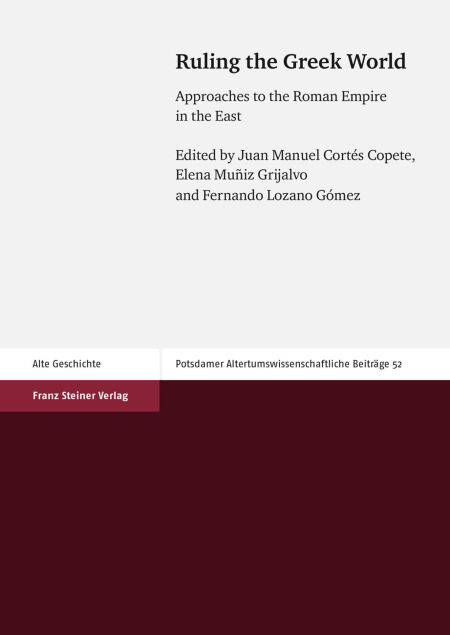
- Afhalen na 1 uur in een winkel met voorraad
- Gratis thuislevering in België vanaf € 30
- Ruim aanbod met 7 miljoen producten
- Afhalen na 1 uur in een winkel met voorraad
- Gratis thuislevering in België vanaf € 30
- Ruim aanbod met 7 miljoen producten
Zoeken
Ruling the Greek World E-BOOK
Approaches to the Roman Empire in the East
€ 52,00
+ 52 punten
Uitvoering
Omschrijving
This e-book analyses the procedures, ideas and realities that allowed the people from the Greek East to become a part of the Roman Empire, while both preserving and redeveloping their cultural identity. The volume assesses this complex process both in the traditional Greek cities of the provinces of Achaea and Asia as well as in other areas that had been deeply hellenised for centuries, as the Near East. A common point of departure of the different essays is the notion that granting the Greeks a privileged position within the Roman Empire as a tribute to their civilisation was as possible an option as that of "barbarisation", i.e. the substitution of Greek cultural identity by the Roman one. Between the respect and conservation of political and cultural structures, and their total annihilation and substitution by new realities of undeniable Roman stamp, there existed a wide spectrum of political possibilities with strong cultural and religious undertones. In creating those new options, which Rome either opted for, refused, or transformed, the political and cultural activity of the Greeks themselves, and in particular the oligarchs who ruled the cities in the Mediterranean East, played an important role. This volume attempts to analyse all those new possibilities.
Specificaties
Betrokkenen
- Uitgeverij:
Inhoud
- Aantal bladzijden:
- 192
- Taal:
- Engels
- Reeks:
Eigenschappen
- Productcode (EAN):
- 9783515111362
- Verschijningsdatum:
- 16/12/2015
- Uitvoering:
- E-book
- Beveiligd met:
- Digital watermarking
- Formaat:

Alleen bij Standaard Boekhandel
+ 52 punten op je klantenkaart van Standaard Boekhandel
Beoordelingen
We publiceren alleen reviews die voldoen aan de voorwaarden voor reviews. Bekijk onze voorwaarden voor reviews.







